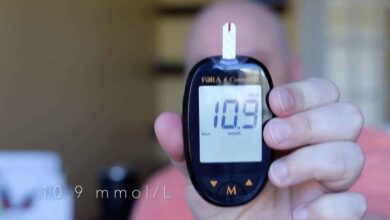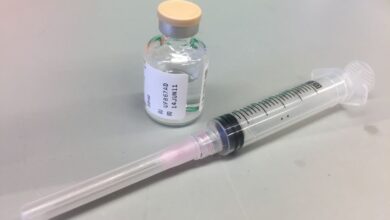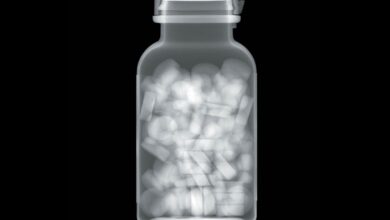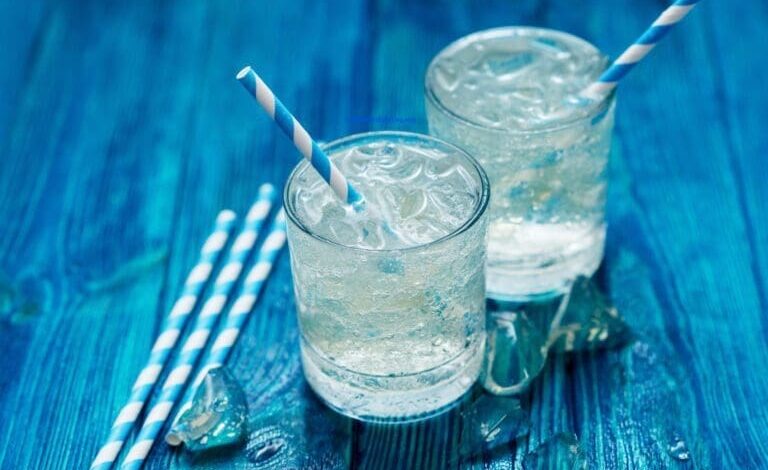
Can sparkling water cause weight gain? This question pops up frequently, and the answer isn’t a simple yes or no. It depends on a lot of factors, from the specific ingredients in your sparkling water to your overall dietary habits and metabolism. We’ll dive deep into the composition of sparkling water, its potential impact on your metabolism, and whether it truly contributes to weight gain or not.
We’ll also explore individual factors, conflicting studies, and alternative beverages for a well-rounded understanding.
This in-depth exploration will help you determine if sparkling water fits into your weight management plan. We’ll examine the nutritional content of various sparkling water options, including flavored and diet varieties, and compare them to other beverages. Understanding the potential impact on your body is key to making informed choices.
Understanding Sparkling Water’s Composition
Sparkling water, a popular beverage choice for its refreshing fizz and purported health benefits, often masks a complex composition. Beyond the simple act of adding carbonation, the ingredients and nutritional profile can vary significantly between brands and types. Understanding these nuances allows for informed choices and a deeper appreciation for this effervescent drink.The core of sparkling water is water, but the additives, carbonation process, and branding strategies influence its overall makeup.
This exploration delves into the specifics of sparkling water’s composition, examining the ingredients, nutritional content, and the impact of carbonation on its taste and texture.
Typical Ingredients
The primary ingredient in virtually all sparkling water is purified water. Beyond this, manufacturers often add flavorings, sweeteners, and other additives. Plain sparkling water, as the name suggests, primarily consists of carbonated water. Flavored varieties, however, incorporate a wider array of ingredients to create specific tastes. Natural fruit extracts, artificial flavorings, and sweeteners are commonly used.
Diet sparkling water often replaces sugar with artificial sweeteners like aspartame or sucralose. Understanding these variations helps consumers tailor their choices to their dietary needs and preferences.
Nutritional Content
Sparkling water, in its purest form (plain), is virtually calorie-free and contains negligible amounts of carbohydrates. This characteristic makes it a low-calorie alternative to sugary drinks. However, flavored varieties can significantly increase the caloric and carbohydrate content. Artificial sweeteners, commonly used in diet sparkling water, do not contribute calories but may still have an impact on blood sugar levels for some individuals.
- Plain sparkling water generally has zero calories and negligible carbohydrates. This makes it a low-calorie beverage choice.
- Flavored varieties, however, can contain calories and carbohydrates from the added flavors and sweeteners. The exact amount varies widely depending on the brand and flavor.
- Diet sparkling water aims to reduce calories and carbohydrates by replacing sugar with artificial sweeteners. The caloric and carbohydrate content will be very low, but the effects of these sweeteners on the body may vary.
Role of Carbonation
Carbonation, the process of dissolving carbon dioxide gas in water, is crucial to sparkling water’s characteristic taste and texture. This process creates the signature effervescence and a slightly acidic, crisp flavor profile. The level of carbonation directly impacts the drink’s mouthfeel, from a subtle fizz to a more pronounced effervescence.
Comparative Nutritional Profile
The following table provides a general overview of the nutritional profiles of different sparkling water varieties. Note that these values can vary significantly between brands and specific flavors.
| Type | Calories (per serving) | Carbohydrates (per serving) | Other Notable Ingredients |
|---|---|---|---|
| Plain Sparkling Water | 0 | 0 | Carbonated water |
| Flavored Sparkling Water | 5-30+ | 0-10+ | Water, flavorings, sweeteners |
| Diet Sparkling Water | 0-2 | 0-1 | Water, artificial sweeteners, flavors |
Potential Impact on Metabolism
Sparkling water, with its effervescent nature, often raises questions about its impact on our bodies. While the overall effect on metabolism isn’t drastically negative, understanding how it might influence digestion, satiety, and blood sugar is crucial for making informed choices. The presence of carbon dioxide, a key component of sparkling water, introduces some interesting dynamics that warrant careful consideration.The carbonation in sparkling water can affect digestion and absorption in subtle ways.
The bubbles themselves don’t significantly alter the nutritional content of the water, but their presence might influence how quickly the water is absorbed. This potential variation in absorption rate could, in theory, impact nutrient delivery to the body. It’s important to note that this is a complex process, and more research is needed to fully understand the nuances.
Effects on Digestion and Absorption
The carbonation in sparkling water can stimulate the production of gastric juices. This increased acid production can facilitate the initial stages of digestion. However, this effect is relatively mild and unlikely to have a substantial impact on overall digestive function. The carbonation may also slightly increase the rate at which the stomach empties, potentially influencing how quickly nutrients are absorbed.
Influence on Satiety and Appetite
Sparkling water’s effect on satiety levels is a topic of some discussion. The feeling of fullness after drinking sparkling water might be slightly different compared to still water, due to the carbonation’s effect on the stomach and the potential stimulation of gastric juices. However, this effect is often quite individual and dependent on factors such as the person’s overall hydration status and their dietary habits.
In general, the carbonation itself is unlikely to be a significant factor in altering satiety levels, compared to the impact of the food and beverages consumed throughout the day.
Comparison with Still Water Consumption
The metabolic effects of sparkling water and still water are generally very similar. Both provide hydration without significant calories. While the carbonation might have minor effects on digestion and the feeling of fullness, these effects are not substantial enough to significantly alter the metabolic processes. The key difference is in the perceived refreshment and potentially slight differences in taste preferences.
This can influence hydration habits, which are crucial for overall metabolic health.
Impact on Blood Sugar Levels
Blood sugar levels are influenced by many factors, including diet and overall health conditions. Sparkling water itself doesn’t contain significant amounts of sugar, making it unlikely to have a direct impact on blood sugar in a healthy individual. However, if a person has pre-existing conditions like diabetes or other metabolic issues, they should consult with their healthcare professional to determine if sparkling water consumption is suitable for them.
The impact can also be affected by what else is consumed along with the sparkling water.
Calorie and Weight Management: Can Sparkling Water Cause Weight Gain
Sparkling water, a popular beverage choice, often garners attention for its potential weight management benefits. Understanding its caloric content and how it compares to other drinks is crucial for anyone looking to maintain a healthy lifestyle. This section dives into the caloric makeup of various sparkling water options and their impact on weight management.The caloric content of sparkling water itself is generally minimal.
However, the addition of sweeteners, flavors, and other ingredients can significantly alter this. This analysis explores how these additions affect the overall caloric load and the potential contribution to weight gain or loss.
Caloric Content Summary
Sparkling water, in its purest form, is calorie-free. This characteristic distinguishes it from many other beverages like juice, soda, or sweetened tea, which contain significant amounts of sugar and calories. The absence of added sugars makes it a potentially beneficial choice for those looking to manage their calorie intake.
Impact on Weight Gain
The consumption of plain sparkling water does not contribute to weight gain. Its calorie-free nature makes it a neutral component in a weight management strategy. It can even aid in weight management by replacing higher-calorie beverages. However, the addition of ingredients like syrups or artificial sweeteners can negate these benefits. The key is to be mindful of added components.
Impact of Added Sweeteners and Flavors
The inclusion of sweeteners and flavors significantly impacts the caloric content of sparkling water. Sweetened varieties can contain a considerable amount of calories, comparable to sugary drinks. Artificial sweeteners, while often marketed as calorie-free, may not always align with long-term health goals. Therefore, choosing unsweetened, unflavored options is recommended for optimal weight management.
Comparison with Other Beverages
Sparkling water, when plain, provides a low-calorie alternative to sugary drinks like soda or juice. Compared to fruit juices, it offers significantly fewer calories, making it a healthier choice. Plain sparkling water also presents a lighter option than milk-based beverages. This difference in calorie content is crucial for individuals aiming for healthy weight management.
Caloric Content Variation Table
| Type of Sparkling Water | Preparation Method | Approximate Calories per Serving (12 oz) |
|---|---|---|
| Plain Sparkling Water | No additions | 0 |
| Flavored Sparkling Water (e.g., lemon) | With natural flavorings | ~0-5 |
| Flavored Sparkling Water (e.g., with sugar syrup) | With added sugar | ~15-40+ |
| Sparkling Water with Fruit Puree | With natural fruit puree | ~10-25 |
| Sparkling Water with Fruit Juices | With fruit juices | ~15-50+ |
This table illustrates the wide range of caloric content in sparkling water, depending on the ingredients and preparation method. Consumers should be aware of the potential calorie increase when opting for flavored or sweetened versions.
Potential Conflicting Studies
The relationship between sparkling water and weight gain isn’t as straightforward as a simple “yes” or “no.” Numerous studies have investigated this connection, but the results often contradict each other. These inconsistencies stem from various factors, including the methodologies used, the populations studied, and the potential biases inherent in any research project. Understanding these complexities is key to forming a balanced perspective.Conflicting findings often arise from variations in research methodologies.
Some studies focus on short-term observations, while others track participants over extended periods. The duration of the study can significantly impact the results. For example, a short-term study might not capture the long-term effects of sparkling water consumption on weight.
Methodological Variations in Studies
Different studies employ various methodologies, which can affect the outcomes. For instance, some studies might rely on self-reported dietary data, which can be prone to inaccuracies. Others might measure specific markers in the blood or use more sophisticated physiological tests. These differences in methodology can lead to inconsistent results.
So, does sparkling water cause weight gain? It’s a common question, and the answer isn’t straightforward. While it’s calorie-free, the way we often try to control kids’ behavior with screen time – leading to a vicious cycle of more screen time, as discussed in this fascinating article about trying to control kids behavior with screen time leads to more screen time – might have a parallel in our own approach to diet.
Ultimately, it’s the overall lifestyle, including portion control and other healthy habits, that matters more than just the sparkling water itself.
Potential Limitations of Studies, Can sparkling water cause weight gain
Certain limitations inherent in the study design can influence the findings. Sample size can be a significant factor. Smaller studies might not have the statistical power to detect subtle relationships between sparkling water consumption and weight gain. Furthermore, the inclusion criteria for participants can introduce bias. If a study only includes individuals with specific characteristics (e.g., a particular age group or health condition), the results might not be generalizable to the broader population.
The lack of control groups or the absence of a control variable can introduce confounding factors that make it difficult to isolate the effect of sparkling water consumption.
So, is sparkling water making you gain weight? It’s a common question, and the answer isn’t straightforward. While the sugar-free varieties are generally fine, the added gas might lead to bloating or digestive discomfort, which can sometimes be mistaken for weight gain. Interestingly, the recent research into the fat freezing procedure is raising some concerns about potential long-term complications.
A new study suggests more complications than initially thought ( fat freezing procedure more complications than doctors thought ). But in the end, if you’re concerned about your weight and are trying to stick to a healthy diet, sparkling water might not be the culprit. A balanced diet and regular exercise are far more impactful.
Factors Influencing Study Outcomes
Several factors can influence the results of studies on sparkling water and weight gain. Dietary habits, for example, play a significant role. If participants in a study maintain a healthy diet alongside their sparkling water consumption, the results might differ from those who follow a less healthy diet. The type of sparkling water (e.g., with added sweeteners) can also influence the outcomes.
A study that examines sweetened sparkling water will likely yield different results compared to a study focused on unsweetened varieties.
Potential Biases in Research Design and Data Collection
Bias can creep into any research, and studies on sparkling water are not immune. Selection bias can occur if researchers choose participants who are likely to report favorable or unfavorable outcomes. Reporting bias, where participants may not accurately reflect their sparkling water consumption, can also distort results. The researchers’ own preconceptions about the effects of sparkling water can unintentionally influence the interpretation of data.
The funding source for the study can also introduce bias. A study funded by a beverage company, for example, might be more inclined to downplay the potential negative effects of their product.
So, does sparkling water cause weight gain? The short answer is probably not, but it’s a bit more complicated than that. While it’s true that the extra calories from added sugars in some sparkling water varieties could contribute to weight gain, the new device could make treatment easier for early stage breast cancer new device could make treatment easier for early stage breast cancer is a significant development.
Ultimately, a balanced diet and regular exercise are key factors, and if you’re concerned about your intake of sugary sparkling waters, it’s best to opt for naturally flavored options or skip the added sugar altogether.
Impact of Individual Factors

Individual responses to sparkling water consumption vary significantly. Factors like metabolism, dietary habits, overall health, carbonation sensitivity, and activity levels all play a role in determining whether sparkling water has a positive or negative impact on weight management. Understanding these individual nuances is crucial for personalized recommendations.Individual metabolisms differ considerably. Some individuals have a faster metabolism, meaning their bodies burn calories at a higher rate.
Those with faster metabolisms might be less susceptible to weight gain from consuming sparkling water, as their bodies are more efficient at processing the calories from any additional intake. Conversely, slower metabolisms might make some more prone to weight gain from extra calories.
Metabolism and Dietary Habits
Individual metabolic rates greatly influence how the body processes calories from sparkling water. Faster metabolic rates may lead to a more efficient processing of any calories, while slower metabolisms might result in a greater likelihood of storing those calories as fat. Dietary habits also significantly impact the overall caloric intake and, consequently, the potential for weight gain. A balanced diet with adequate protein, healthy fats, and complex carbohydrates can help regulate appetite and metabolism, potentially mitigating the impact of sparkling water consumption on weight.
Carbonation Sensitivity
Individual sensitivities to carbonation vary. Some people experience digestive discomfort, bloating, or gas after consuming carbonated beverages, including sparkling water. This discomfort may lead to reduced consumption or avoidance of sparkling water altogether, thereby impacting its potential impact on weight.
Pre-existing Health Conditions
Pre-existing health conditions can interact with sparkling water consumption in various ways. For example, individuals with certain digestive issues, such as irritable bowel syndrome (IBS), may find that carbonation exacerbates symptoms. Similarly, those with conditions that affect fluid retention might need to be mindful of the impact of consuming any beverage, including sparkling water. Consulting with a healthcare professional is essential to determine the appropriateness of sparkling water consumption in the context of specific health conditions.
Physical Activity Levels
The impact of sparkling water on weight management is further influenced by individual activity levels. Individuals with higher levels of physical activity may have a greater capacity to burn calories, potentially mitigating the impact of any additional calories from sparkling water. Conversely, individuals with lower activity levels may be more susceptible to weight gain if the additional calories from sparkling water aren’t offset by increased energy expenditure.
Potential Interactions with Health Conditions
| Health Condition | Potential Interaction with Sparkling Water Consumption |
|---|---|
| Irritable Bowel Syndrome (IBS) | May exacerbate symptoms like bloating, gas, and abdominal discomfort due to carbonation. |
| Gastroesophageal Reflux Disease (GERD) | May worsen reflux symptoms in some individuals due to carbonation. |
| Kidney Stones | Potential for increased risk of kidney stones in susceptible individuals. This is due to the potential for increased calcium excretion in the urine. More research is needed in this area. |
| Fluid Retention Conditions | May exacerbate symptoms of fluid retention. |
| Certain Medications | May interact with the absorption or metabolism of sparkling water. |
Alternatives and Comparisons
Exploring the world of bubbly beverages reveals a fascinating array of options beyond sparkling water. Choosing the right alternative depends on individual preferences and health goals. Understanding the nutritional profiles and potential impacts of these beverages allows for informed choices, contributing to a healthier lifestyle.
Suitable Alternatives to Sparkling Water
Choosing alternatives to sparkling water involves considering factors like calorie content, ingredients, and potential health effects. Different options cater to various needs and preferences. Here are some suitable alternatives, each with unique characteristics:
- Flavored Sparkling Water: Often sweetened with artificial or natural sweeteners, these options vary widely in calorie and sugar content. The sugar content can impact blood sugar levels and contribute to weight gain. Choosing unsweetened varieties is crucial for weight management.
- Unsweetened Iced Tea: This option offers a naturally refreshing alternative. It’s typically low in calories and can be a healthy choice when prepared without added sugar or sweeteners. The caffeine content should be considered by those sensitive to it.
- Infused Water: Infused water can be customized with fruits, herbs, or vegetables, adding flavor and potential health benefits. The key is to avoid using sugary syrups or excessive amounts of fruit to maintain a low-calorie option.
- Still Water: Plain still water is the simplest and most calorie-free choice. It’s an excellent option for hydration and is readily available.
- Sparkling Unsweetened Iced Tea: Combining the refreshing fizz of sparkling water with the flavor of unsweetened iced tea provides a delicious and low-calorie option.
Similarities and Differences Between Sparkling Water and Other Carbonated Beverages
Carbonation is a common thread connecting sparkling water and other carbonated beverages. However, significant differences exist in their composition and potential health impacts.
- Compositional Differences: Sparkling water is primarily water and carbon dioxide, while other carbonated beverages often contain added sugars, artificial sweeteners, and flavorings. The ingredients significantly impact the nutritional profile and potential health consequences.
- Calorie Content: Sparkling water, in its purest form, is calorie-free. Other carbonated drinks, especially those with added sugars, can contain substantial calories, impacting weight management.
- Potential Health Impacts: Excessive consumption of some carbonated beverages, especially those with added sugar, has been linked to various health problems, including weight gain, dental issues, and potential digestive problems. Sparkling water, when consumed in moderation, poses minimal health risks.
Comparison of Sparkling Water with Other Mealtime Beverages
Choosing a beverage for meals involves balancing taste, hydration, and nutritional impact. The calorie count and ingredients of the beverage can significantly influence overall health and weight management.
| Beverage | Calorie Count (approx.) | Ingredients | Health Impacts |
|---|---|---|---|
| Sparkling Water | 0 | Water, Carbon Dioxide | Minimal health risks, good hydration |
| Soda | ~100-150+ | Water, Sugar, Carbon Dioxide, Artificial Flavors | Potential for weight gain, dental problems, and digestive issues |
| Fruit Juice | ~100+ | Fruit, Sugar, Water | High sugar content, can contribute to weight gain, and not ideal for sustained hydration. |
| Milk | ~100+ | Milk, Water | Provides protein and nutrients, moderate calories |
Practical Tips and Recommendations
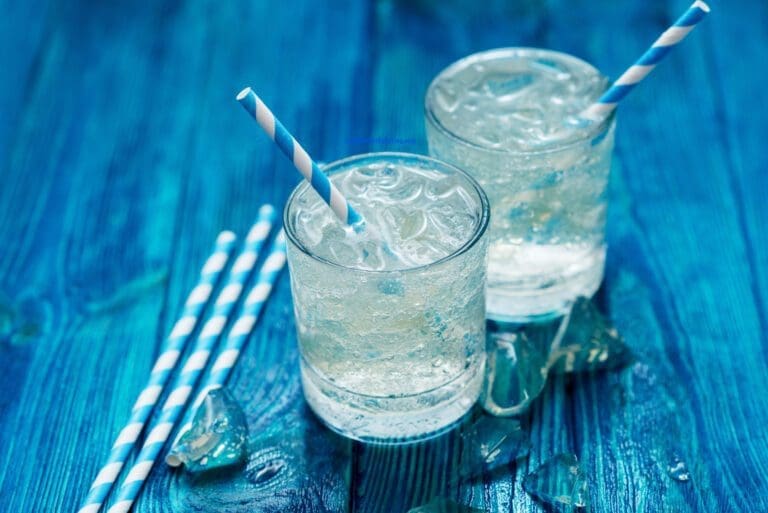
Sparking water, with its zero-calorie profile, can be a valuable addition to a healthy lifestyle. However, responsible integration is key. This section provides practical strategies for incorporating sparkling water into your diet, maximizing its benefits and minimizing potential downsides.Smart strategies for incorporating sparkling water into a healthy diet involve understanding your body’s needs and tailoring your intake to fit your lifestyle.
These recommendations aim to help you make informed choices and enjoy the refreshing experience of sparkling water without compromising your weight management goals.
Incorporating Sparkling Water into a Healthy Diet
Proper hydration is crucial for overall well-being. Sparkling water, when used strategically, can contribute to this. It can be an excellent alternative to sugary drinks, helping to reduce calorie intake and potentially aid in weight management.
- Gradually Transition: If you currently consume sugary drinks, gradually reduce your intake of these beverages while increasing your sparkling water consumption. This approach helps your body adjust and avoids potential discomfort.
- Flavor Exploration: Experiment with different flavors to discover ones you enjoy. Citrus fruits, berries, or even a splash of fruit juice can create flavorful and refreshing sparkling water options.
- Consider the Source: Choose sparkling water brands with minimal added sweeteners or artificial ingredients. Many natural brands are available, allowing for a healthier option.
- Pair with Meals: Enjoy sparkling water with meals. It can aid digestion and help you feel full, potentially reducing the amount of food you consume.
Designing a Sample Daily Intake Plan
A sample daily intake plan is presented as a guideline, not a strict rule. Adjust quantities based on individual needs and activity levels.
| Time of Day | Drink | Quantity (approx.) |
|---|---|---|
| Morning (after breakfast) | Sparkling water with lemon | 1 glass (8 oz) |
| Mid-morning (snack time) | Sparkling water | 1 glass (8 oz) |
| Lunch | Sparkling water | 1 glass (8 oz) |
| Afternoon (after lunch) | Sparkling water with cucumber | 1 glass (8 oz) |
| Dinner | Sparkling water | 1 glass (8 oz) |
| Evening (before bed) | Sparkling water | 1 glass (8 oz) |
Using Sparkling Water to Reduce Sugary Beverage Intake
A key strategy for weight management is reducing the intake of sugary beverages. Sparkling water can be a powerful tool in this process.
- Replace Sugary Drinks: Gradually replace sugary sodas, juices, and sweetened teas with sparkling water. This step-by-step approach helps minimize the negative effects of a sudden dietary change.
- Flavor Enhancements: Add fruit slices, herbs, or a splash of natural sweeteners to make sparkling water more appealing, thus reducing the desire for sugary beverages.
- Mindful Consumption: Be mindful of how and when you consume sparkling water. Avoid pairing it with excessively high-calorie meals or snacks.
Avoiding Pitfalls That May Lead to Weight Gain
While sparkling water is generally beneficial, certain practices can lead to unintended consequences.
- Excessive Consumption: Although sparkling water has low calories, excessive consumption could lead to digestive issues or bloating. Moderation is key.
- High-calorie Mix-ins: Avoid adding high-calorie syrups, juices, or flavored syrups to your sparkling water, as these can negate the benefits.
- Ignoring Hydration Needs: Don’t rely solely on sparkling water for your daily hydration needs. Plain water remains the best choice for adequate hydration.
Wrap-Up
In conclusion, the question of whether sparkling water causes weight gain is multifaceted. While it’s generally calorie-free, the presence of added sweeteners or flavors, individual metabolic differences, and potential interactions with existing health conditions play a crucial role. Ultimately, incorporating sparkling water into a balanced diet, alongside mindful consumption choices, can contribute to overall well-being. By considering the insights presented here, you can make informed decisions about your sparkling water consumption and maintain a healthy lifestyle.
